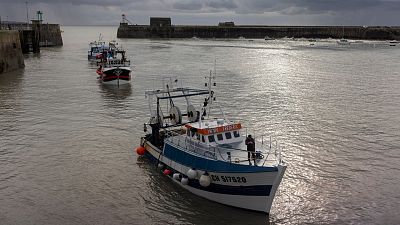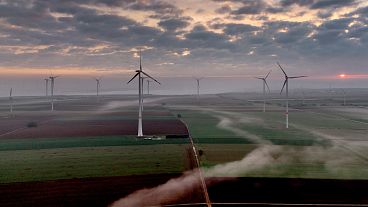It could be its most liquid commodity yet.
Water shortages could affect around five billion people worldwide by 2050, according to the UN.
The threat of a future where water isn’t readily available is particularly acute in California, US where record temperatures and raging wildfires have wreaked havoc this year.
If pictures of orange skies and burning forests weren’t enough to convince you that climate change is a problem for this US state, Wall Street is about to start trading futures contracts on its water supply.
A futures contract is an agreement to buy or sell an asset, like water, at a specific time in the future at an agreed upon price. Futures are have historically been traded for things like oil, precious metals or food.
CME is the world’s largest futures exchange and will launch the ability to trade in contracts for California’s water market later this year. Each contract would represent 10 acre feet of water, or the amount of water it takes to cover an acre over land in one foot of water.
For those of us using the metric system, that is the amount it would take to cover 40,468 square metres in about 30cm of water.
“With nearly two-thirds of the world's population expected to face water shortages by 2025, water scarcity presents a growing risk for businesses and communities around the world,” explains Tim McCourt, the global head of equity index and alternative investment products at CME.
Supply and demand
Climate experts have warned that tensions are already rising over water shortages around the world. The need for water has to be balanced between supplying people’s homes, energy production and irrigating crops to provide us with food.
If this isn’t properly balanced or supplies run too low, it has the potential to erupt into violence and water wars could become a real possibility.
Those who are backing the introduction of water futures argue that it “can help to more efficiently align supply and demand of this vital resource.”
At the moment, 40 per cent of water in California is used to irrigate over 3.5m hectares of crops. CME says that these futures contracts will allow farmers and other agricultural businesses in the state to have a guaranteed price for water even if shortages arise.
The company adds that buying futures contracts would help businesses who need water to function to manage the risks of climate change. This would then keep costs down, in turn helping consumers.



